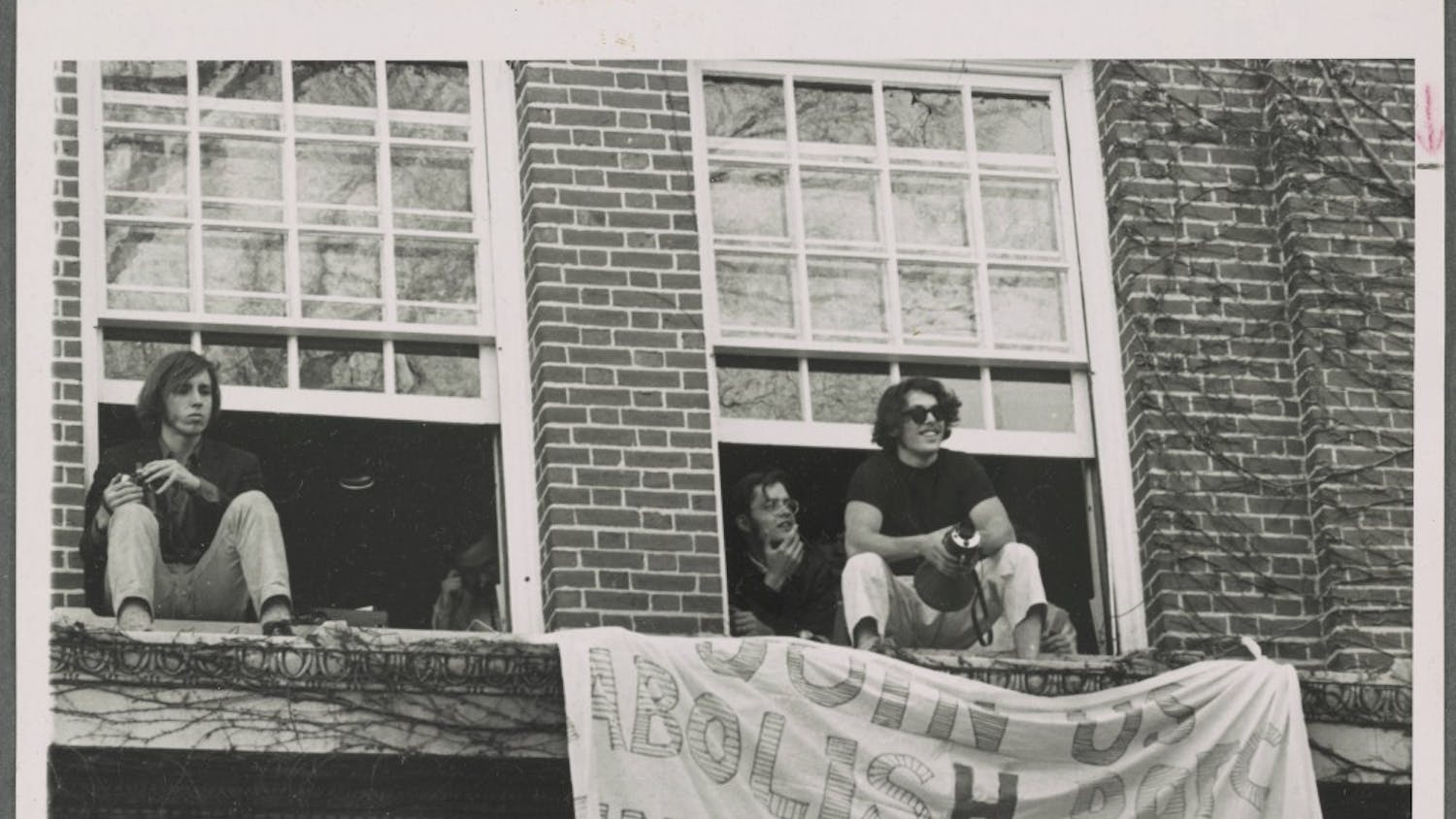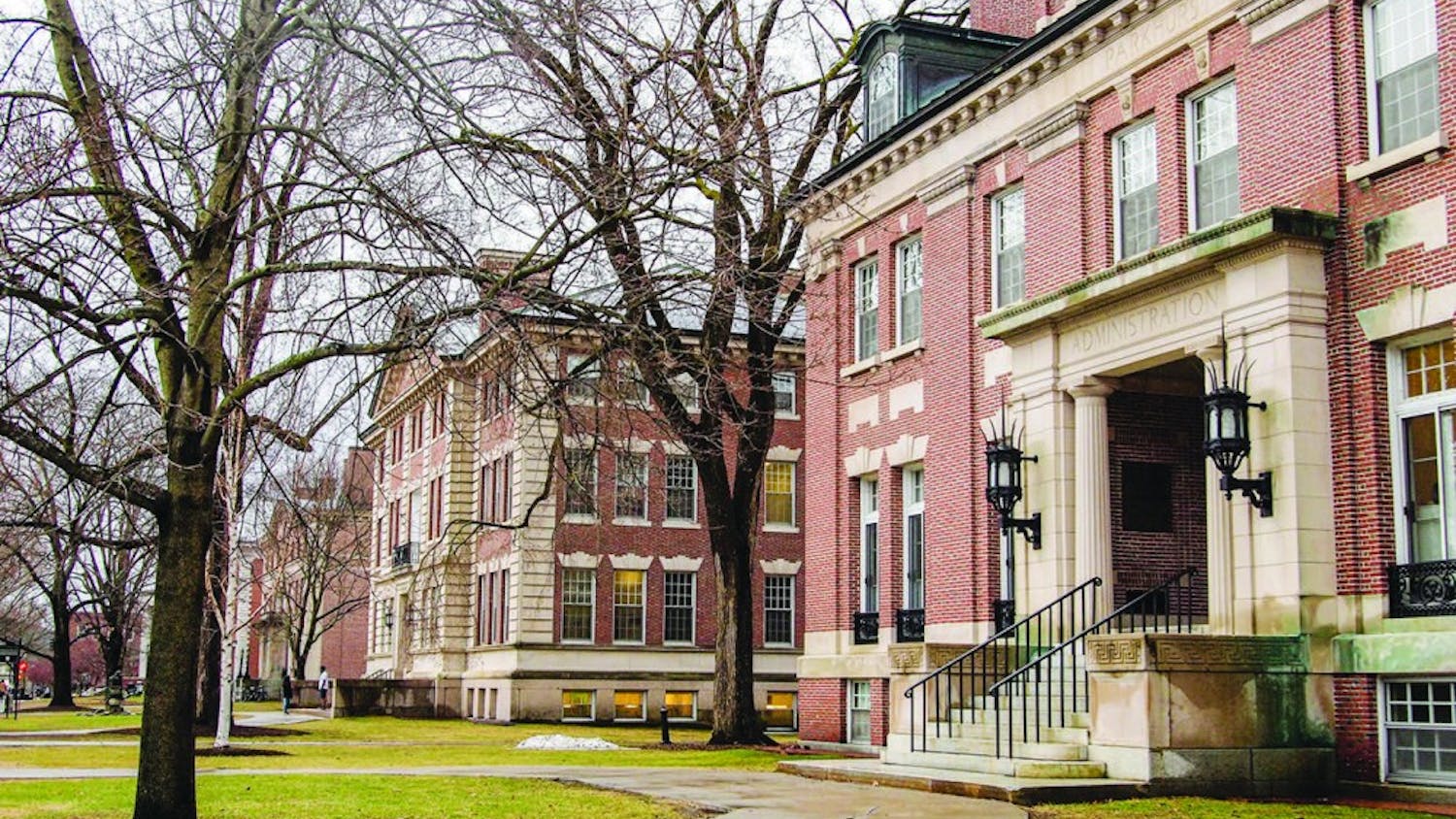Students and faculty have started a chapter of the national history honor society Phi Alpha Theta at Dartmouth, which aims to serve as both an honor society and a club and is open to all students and faculty.
The chapter kicked off its first event last week with a virtual mini-lecture titled “Was the Vietnam War a Civil War? Exploring a Surprisingly Controversial Idea," along with a live Q&A session hosted by faculty sponsor and history professor Edward Miller. The chapter plans to continue its series of mini-lectures and Q&As throughout the term, according to PAT vice president Nina Vogel ’21.
The new group, which now has 30 members, was approved by the Council of Student Organizations in February and held its first meeting at the start of the term.
PAT president Rushil Shukla ’20 said that he hopes participation in PAT will prompt intellectual growth among history students.
“For liberal arts subjects like history in particular, it’s important to have an honors society like this where students can come together and [have] dialogue on issues that they care about … relating to the subject of study of history,” Shukla said.
To become a member of Dartmouth’s Alpha Pi Phi chapter of PAT, students do not need to be history majors but must have taken at least four history courses. Eligible students must have a grade point average of at least 3.0 overall and at least 3.1 in history.
According to Miller, who initiated the effort to bring PAT to campus, faculty in the history department became interested in bringing a history club to Dartmouth following conversations about building a community for those passionate about history.
Miller said that history faculty appreciate the interactions with students in classrooms, but those interactions do not happen with the same frequency outside of formal spaces.
“[History faculty] felt that Phi Alpha Theta might be a way to facilitate some ways for us to interact with our students in ways that still involve history but aren’t structured around the kind of the formality of the classroom,” Miller said.
Vogel said that it can be difficult for history students to build community, and PAT seeks to facilitate that process.
“I think some majors have sort of built in communities, like for example [in] engineering, you're constantly working on projects, and there’s this inherent collaborative nature,” Vogel said. “[But] there wasn't an explicit space for history majors to engage in that passion together and learn more and tap into all of the resources available to us.”
Vogel said that in future terms, PAT plans to organize events such as pre-professional panels, research workshops, mentorship programs, student-led discussions and lectures from faculty and guest speakers.
Shukla added that PAT will serve as a place for history students to find in intellectual camaraderie.
“It's meant to serve not only as an honor society, but also a place for students interested in history to come and talk about history, to build a sense of intellectual community [and] to engage with like-minded students in intellectual dialogue on various historiographical debates,” Shukla said.
Miller said non-member students and faculty can also attend events. He added that all history faculty and faculty associated with the history department are welcome to join PAT and participate in events, but the society is intended to be student-led.
Vogel said she hopes that pre-professional alumni panels organized by PAT will help students understand the possibilities that lie ahead with a history degree.
“Sometimes people think that history stays in academia, but we have so many amazing Dartmouth alums and other alums that come from history backgrounds that go into law or consulting or government or even finance, and so we want to showcase that and show what kind of opportunities lie ahead of you even when you're studying history,” Vogel said.
National president of PAT and professor of history at Texas Woman’s University Jacob Blosser said that he is “delighted” to welcome the Alpha Pi Phi chapter of PAT and looks forward to engaging with Dartmouth students in the future.
According to Blosser, PAT is the nation’s largest history honors society, with over 900 chapters across the U.S. He added that the national organization hosts regional and national conferences and sponsors opportunities, including paper prizes and journals, for its members.
New PAT members must pay a one-time $50 membership fee, of which the history department subsidizes 50 percent. However, the history department will not collect dues until the fall in light of the COVID-19 pandemic.
Correction appended (Apr. 23, 2020): A previous version of this article misattributed two of Vogel's statements to Shukla, as well as one of Shukla's statements to Vogel. The article has been updated to reflect the correct attributions.



